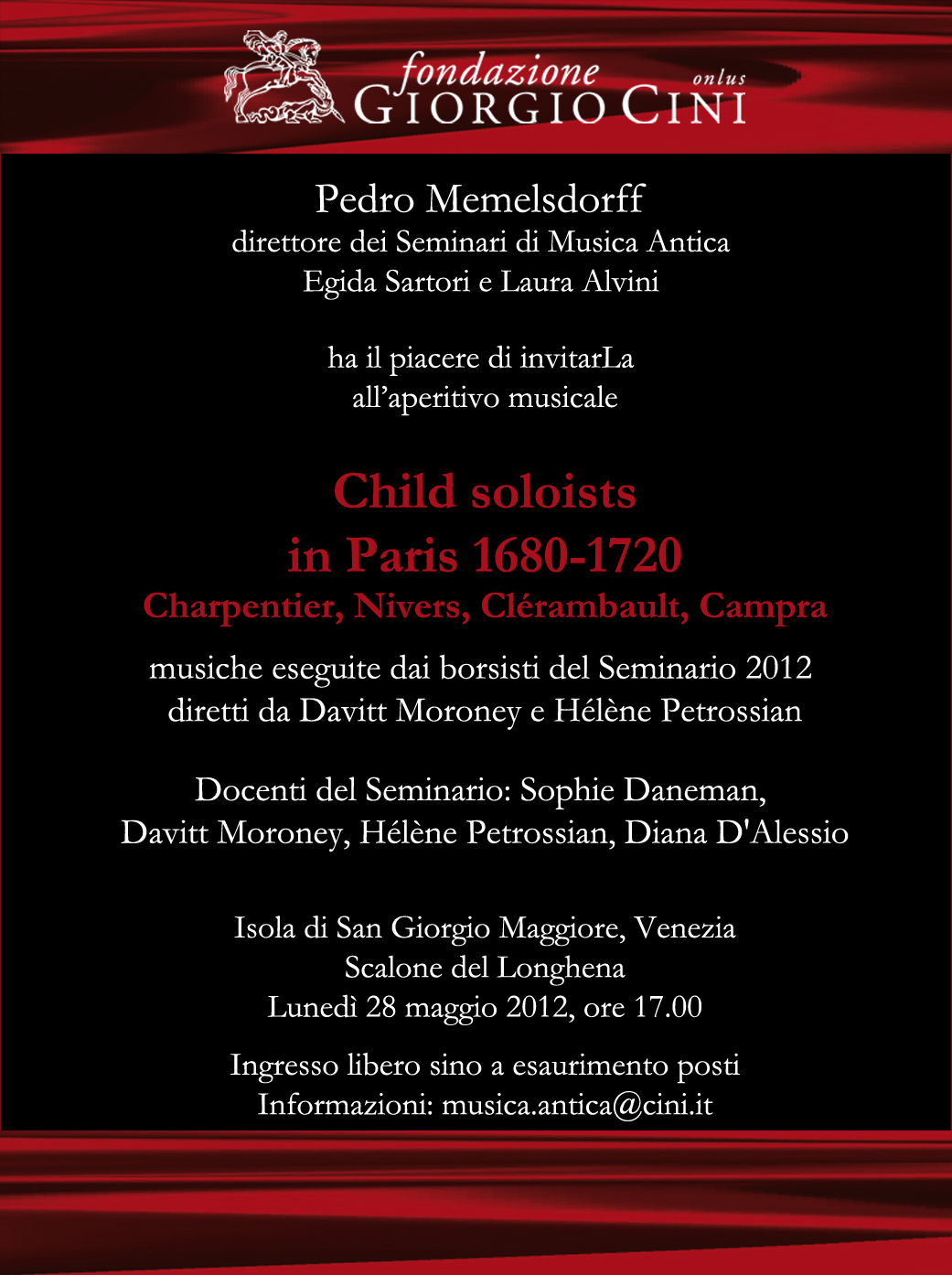
Early-Music Seminars 2012 | Child soloists in Paris 1680-1720. Charpentier, Clérambault, Nivers, Campra

23 – 29 May
Programme
23 May
Introduction lecture
by Davitt Moroney (University of Berkeley)
Venice, Casino Venier, Alliance française
Free entrance

25 May 10am – 7pm
Giornata di studi
Venice, Island of San Giorgio Maggiore
Free entrance
28 May 5pm
Concert
Venice, Island of San Giorgio Maggiore
Free entrance
This year’s early music seminar will explore a repertory that is as unusual as it is neglected: music for child soloists in Paris in the late 17th and early 18th centuries. The repertoire fl ourished above all in choirs and ensembles in the various churches and convents in the city (especially the Sainte Chapelle and the monastery of Port Royal) as well as in Jesuit and other religious schools in general. Music was composed to be performed by child soloists in other places too, however: opera houses, theatres, lay musical schools frequented by the children of the lower nobility and the drawing rooms of the courts of
Paris and Versailles. The principal composers in the repertoire include Charpentier, Bernier, Nivers, Clérambault and Campra. Charpentier composed a number of works with children as lead singers, such as David and Jonas, performed for the fi rst time in the Jesuit College of Louis-le-Grand in 1688. Nivers and Clérambault composed motets for the “Demoiselles de Saint-Cyr”, the female students in a school founded in 1686.
The repertoire raises a number of music-history and aesthetic issues, but also socialhistory and moral questions. The music ranges from neo-Gregorian works to religious plays and simplifi ed versions of operas and oratorios or chansons with Arcadian and love texts. The presumed unwitting condition (or at least only partial awareness) of the child singers may have contributed to the success of the henomenon in court circles.
Moreover, this aspect may also have contributed to the association of child soloists – unknowing vehicles for messages – with the Kircherian myth of the automaton in music.
